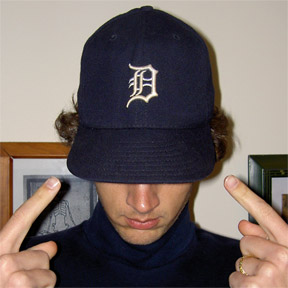A little squall swept through the internet videogame community a few weeks ago. It was caused by an essay Chuck Klosterman wrote for Esquire called The Lester Bangs of Video Games, which lamented the lack of a Bangsian critic of videogaming who could capture the importance and meaning of games.
I wanted to comment on the essay, but I kept putting it off and time kept passing, and then the topic felt cold (plenty of others weighed in). So I was happy to see Gamespot publish a Q&A with Klosterman on the subject this week. Perfect opportunity for a more timely blog post.
My initial reaction to Klosterman’s essay, like a lot of the game community's reactions, was essentially defensive.
“Why are there no video-game critics?” he asked. There are plenty, I thought. Maybe they are writing for blogs or posting to online forums, but they are there.
Klosterman voiced a not-totally-original lament: videogame writers are mostly product reviewers first, not critics of the medium and translators of the experience. “There is no major critic who specializes in explaining what playing a game feels like,” he continued. What? I wondered. Maybe these sentiments are buried online, but plenty of writers describe what playing games feels like.
“Nor is anyone analyzing what specific games mean,” quoth the K-man. And me, one more time: Does Klosterman read video game journalism and reviews? The field does tend to carry a lot of product description, and is plagued by things like glowing, hype-laden game previews that are followed a few months later by mediocre or even bad reviews. But plenty of reviews touch on what Klosterman wants. The writing is not always sublime, but the sentiments are there.
“I’m starting to suspect there will never be that kind of authoritative critical voice in the world of video games,” he wrote. And I thought, good. Klosterman seems to want a super-important, centralizing voice we can all agree with or disagree with. Yet I don’t want authoritative voices telling me what video games mean. And I suspect most gamers don’t either. I want a huge variety of games to explore. I look to reviews to tell me if a game is fun, why the play is good enough to justify a purchase. Then I play it and, love it or not, I decide what that experience meant to me.
Klosterman’s not talking about game stories. He realizes that narratives are often secondary to the gameplay, and that asking for a Pauline Kael of playing is easier than becoming one. What would this meaningful criticism look like? Klosterman called for “potentiality critics,” a concept that is hard for me to understand. “Video games provide an opportunity to write about the cultural consequence of free will,” he explained. Umm, sure. But it sounds like a painfully pretentious read.
Klosterman closed with a lament that, without supercritics, videogames would become simple commodities. “They’ll only be games. […] This generation’s single most meaningful artistic medium will be—ultimately—meaningless.”
I just don’t think this last point is true. Games are already commodities and yet not meaningless. As are rock and roll recordings and movies. And recordings were commodities when Lester Bangs was writing. As were movies when Pauline Kael was writing. Criticism doesn’t turn a mass market into an art show. Within a market are lots of niches, some filled with consumers who want meaningful (however they define it) videogames. I’m confident that there will always be some thoughtful developers eager to make such games.
In fact, when I trace my lifetime of gameplaying, I find that the availability of important, meaningful games, games that function as art, has only grown. A lot of early arcade and console games may have been aesthetically beautiful in their simplicity, but they didn’t have much to say about the medium or the larger world. I think that today games like Shadow of the Colossus are not only fun to play, they are also emotionally and intellectually engaging, with critic-pleasing dollops of meta thrown in. (Can it be true that all great videogames are really about videogames? Well, no.) The medium is clearly evolving. I think game journalism will evolve with it.
So then Klosterman comes back in the new Q&A, saying that on one hand he is pleased his essay has generated a lot of response, but on the other hand he feels gamers and game writers—hey, like me!—have misunderstood his point. He knows that there are spirited, thoughtful communities of game critics (mostly online), but they are writing for gamers, not for “people who aren’t actively playing [videogames].” That’s what he wanted: Someone to explain games to non-gamers.
And then I realized, who cares? Not me. Not other gamers, I’d wager. We want games. Fun games. Smart games and sometimes dumb games. Simple games, complex games, meta games, emotional games. We don’t need the New Yorker to tell us which games are meaningful and which aren’t, and we certainly don’t care if important magazines tell such things to non-gamers. It seems to me that, up to this point, games haven’t needed such a translator-critic. If games haven’t become meaningless yet, I don’t see it happening anytime soon.
CONTINUE READING...
Collapse post

